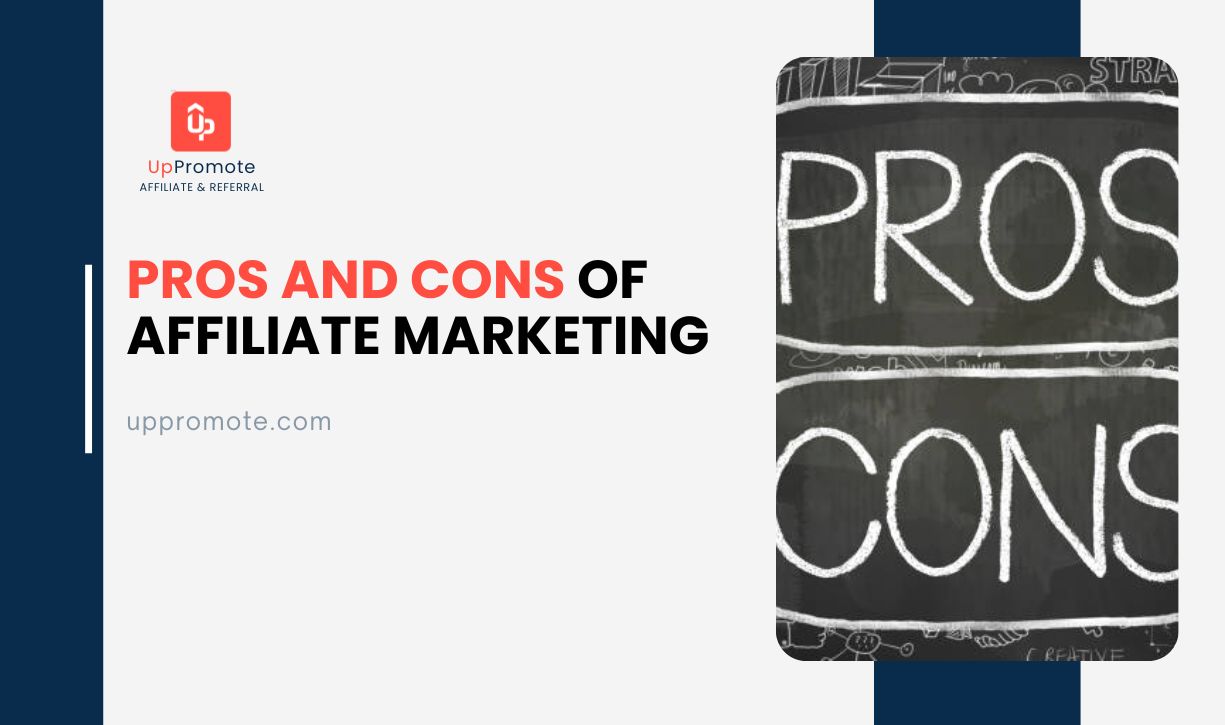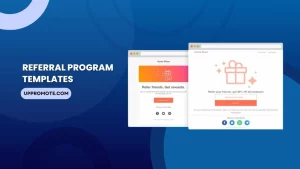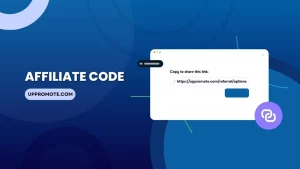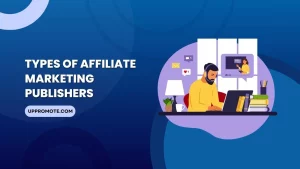Learning the pros and cons of affiliate marketing can help you decide whether this money-making strategy is right for you.
Beyond the monetary rewards, affiliate sales & marketing can bring a sense of accomplishment – a natural high – knowing you made a difference in people’s lives. It’s easy to join, requires zero to little startup cost, and facilitates work-life balance. Unfortunately, this business model isn’t for everyone because it has drawbacks some people might find unacceptable.
So, please continue reading to get a heads-up on the pluses and minuses of affiliate marketing.
Pros of Affiliate Marketing for Affiliate Marketers
Low barriers to entry
Unlike conventional money-making strategies (i.e., setting up a brick-and-mortar store), establishing an affiliate business is a walk in the park. You only pick a niche, create a website or a digital channel to mount an effective marketing campaign, join an affiliate network or program, and promote high-quality products that audiences find beneficial.
You will never worry about the usual barriers to entry, such as capital, infrastructure, and human resource requirements. A clear vision of what you want to accomplish and a strong desire to improve your audience’s lives are all you need.
Joining affiliate networks or programs is easier than applying for a job or finding the right candidate for your business. The signup and vetting processes are straightforward, and there’s a good chance the company will accept your application.
Why?
Four in five businesses have an affiliate program. Over 330 million companies serve various products and services to consumers worldwide. That translates to at least 264 million brands finding affiliates to promote their products. And each brand doesn’t find one or two marketers. No. They will want to partner with as many affiliates as they can.
So, entering the exciting and productive world of affiliate sales and marketing should be a cinch.
Zero/Minimal costs

One of the most significant advantages of affiliate marketing is its near-negligible startup costs. Although building and hosting an affiliate website can cost tens of dollars monthly, some programs allow you to promote their products using other channels. And that don’t cost anything.
Setting up a traditional micro-business requires at least $3,000, while home-based small enterprises can spend $2,000 to $5,000 to get their operations going. You’ll consider a physical store, business setup fees & licenses, regulatory fees, rent, and utilities.
Let’s not forget the hardware, inventory, and other logistical concerns. Manpower is another cost for conventional businesses.
On the other hand, an affiliate marketing business will only cost you $500 max to start. That’s $200 for affiliate-related technologies (i.e., tracking software, competitor research tools, landing page builders, web hosting, and creatives) and $300 for campaign testing.
Although monthly website hosting fees and periodic campaign testing are regular expenses, affiliate marketing spending remains lower than operating a traditional business (i.e., salaries, inventory, marketing, and maintenance).
Affiliates only promote other businesses’ offerings. They don’t worry about advertising materials and promotional resources because the brand handles that. You will never fret about managing inventory or delivering products to customers.
And that lowers affiliate sales and marketing costs to near negligible levels.
Multi-billion dollar industry
Affiliate sales and marketing is a 17 billion dollar industry, with experts projecting a market growth of $40 billion by 2030. A $13 billion increase over six years is more impressive than the $4 billion growth the industry experienced from 2016 to 2023.
But what do these figures mean?
The $13 billion potential increase in the next five to six years means more and more businesses will engage in a comprehensive affiliate marketing strategy. Companies recognize the value of such a business model in optimizing their marketing and promotions budgets to generate more leads and drive sales.
Aspiring entrepreneurs and small business owners will enter the market, offering more relevant and innovative products and services. They will need affiliates to help them promote these offerings to their target audience without jacking up their marketing budgets.
Consider this.
In 2010, the US only had around 6.8 million small businesses. As of 2022, that number grew to 33.2 million, nearly five times the 2010 data. These companies can grow until 2030, paving the way for new entrants into the market.
A growing affiliate marketing industry translates to more opportunities for earning extra.
Extensive choice of products

Imagine over 330 million companies worldwide serving 21st century consumers. Suppose each business offers ten products or services. That’s 330 billion offerings! Although some might be fake or have poor quality, we cannot ignore the potential of promoting affiliate products.
Consider Amazon, the world’s leading e-commerce platform. This $1.54 trillion giant has 350 million offerings from nearly 10 million merchants (Amazon has 12 million Amazon products). Becoming an affiliate partner with Amazon alone is enough to make your dreams of earning big bucks a reality.
The industry isn’t an Amazon Associates monopoly, however. Some brands prefer to launch and manage their respective affiliate programs to exert better control. Building a program from scratch might be more tedious, but companies don’t worry about paying third-party networks a fee. They can give affiliates a more generous commission.
Hence, these businesses can have consumer offerings you don’t see on Amazon and other e-commerce platforms. That increases your earning potential by promoting unique products and services people need.
However, we must reiterate to evaluate each product and promote only niche-related and high-quality ones.
Learning with practice
Learning by doing is more effective than traditional techniques (i.e., reading books, attending a seminar, or watching an educational video course). Although these methods work, they only provide theoretical or conceptual knowledge. Applying these concepts or principles in real life can be challenging, especially for beginner affiliates.
One of the most significant, albeit often overlooked, affiliate marketing pros is its potential for experiential learning. You’ll learn more about yourself, your website, your audiences, your campaigns, and everything about affiliate sales and marketing as you progress through your affiliate journey.
You will discover strategies that work and campaigns that deliver the best results. Sure, hiccups can occur along the way. But everything is part of learning. You will recognize factors influencing promotional campaign effectiveness and actively avoid those measures undermining the results.
For example, suppose your existing strategy only produces less than a 1% conversion rate. Although this value is within industry standards, you’ll want more website visitors or audiences to click on links or perform a desired action. What do you do? You will tweak your strategy several times until you notice an improvement in conversions.
These learnings allow you to become a better affiliate, boosting your credibility and earning potential.
Flexible and location-independent

We cannot appreciate the pros and cons of affiliate marketing if we don’t tackle the business model’s impact on work-life balance.
Traditional jobs call for fixed work hours (i.e., 9 AM to 5 PM) at a permanent location. You leave the house, key in your employee ID (or insert the card in the Bundy clock), and perform your daily tasks. It becomes routine. And that can be boring.
Doing affiliate sales and marketing gives you sufficient flexibility. You can work a few hours daily or a few days a week and spend the rest with loved ones. Creating engaging content doesn’t require a formal office space. You can leverage an establishment with a coworking space or promote products while enjoying the sunset by the beach.
Affiliate sales and marketing also stimulate imagination and unleash creativity. You can strategize to ensure the best results. You could develop stunning and engaging creatives or pick a suitable promotional channel without a supervisor watching your every move.
And if a program isn’t giving you sufficient affiliate income, you can ditch it and find a higher-paying one. Alternatively, diversify your affiliate portfolio to increase earning potential.
A source of passive income
One of the most significant advantages of affiliate sales and marketing is its ability to generate passive income, although some folks might consider it a misnomer. After all, you will still promote products and perform other tasks to earn money.
However, we must point out that online marketing generates a steady income flow.
For example, some programs have a recurring commission structure, allowing affiliates to receive compensation continuously until the referral terminates their “partnership” (i.e., subscription) with the business. You will receive monthly or yearly commission without requiring additional action.
Even brands with single-tier commission schemes can provide steady earnings. Your promotional content will continue generating traffic, driving audiences to the business and increasing your money-making potential.
And that’s passive. After all, you only need to publish high-quality content once (one title or topic). It will continue generating leads and sales. Of course, you can update the content, but the bulk of the work is complete.
Various promotional channels

Traditional marketing strategies use print and broadcast media to promote products. It’s not different with affiliate sales and marketing, except the promotional channels are more varied (more efficient, too).
Although most affiliates have websites or blogs to promote affiliate offerings, these methods aren’t the only ones available.
For example, you can leverage social media platforms (i.e., Facebook, X, Instagram, Pinterest, and LinkedIn) to inform audiences about exciting products and services. You can also entertain them with engaging posts, encourage participation with well-thought hashtags, and entice action through messages that touch the heart.
Video-sharing platforms (i.e., YouTube and TikTok) are also excellent channels for promoting affiliate offerings. Although embedding links in these programs can be tricky, the results are more significant than traditional promotional methods.
Don’t forget email marketing. This promotional strategy beats social media in effectiveness by 4.000%. Why? Email lists comprise individuals who are already interested in a brand. Meanwhile, social media users are highly variable. Most might not be interested in your offerings at all.
You can also promote affiliate offerings via podcasts, webinars, and messaging apps (i.e., Telegram, WhatsApp, WeChat, and Android- or iOS-based messengers). Some brands also allow newsletters and traditional word-of-mouth marketing.
Scoring an affiliate sale is easy, with many promotional channels to use.
Opportunity to have long-term partnerships
Here’s an affiliate sales & marketing advantage many people often overlook. We must emphasize that a successful affiliate marketing strategy hinges on an affiliate’s relationship with audiences and brands.
Businesses pay affiliates a commission for their efforts, while audiences perform actions necessary for a commission. Without them, earning a fat paycheck is next to impossible.
Beyond financial rewards, affiliate sales & marketing activities foster mutually beneficial relationships. Businesses value affiliates’ contribution to driving sales, while audiences value the knowledge and solutions afforded by the business-affiliate-consumer dynamic.
This increases the chances of developing long-term partnerships, especially if you devote time and effort to improving audience engagement and customer service. People will value your expertise and genuine desire to make their lives easier. Meanwhile, businesses will appreciate your efforts to bring more revenue.
Hence, whatever you decide in the future, these entities (i.e., businesses, audiences, and other affiliates or influencers) will support you. For example, you will have a readily available customer base if you establish your own business. Partner businesses will also cooperate with you in realizing your dreams.
That’s something an affiliate can look forward to.
Cons of Affiliate Marketing You Should Know
No control over the rule

Although promoting other businesses’ offerings to potential customers is fun and rewarding, affiliates cannot control the rules. You cannot tell brands to hike their commission rates or be more lenient in their attribution schemes. Some might have ridiculous payout terms, requiring you to wait several weeks before receiving the paycheck.
Sometimes, products can degrade in quality, perhaps due to manufacturing cutbacks. It can upset your audiences and undermine your credibility for promoting a less-than-stellar product. Although you can send feedback or suggestions to the brand, there’s no guarantee they’ll act on it.
Some programs have strict rules or terms. For example, you can only become an affiliate if your website has an active and engaged audience (i.e., at least 200 daily visitors or over 100 likes and shares).
Although these rules are understandable to ensure order and prevent fraudulent activities, they can be significant cons of affiliate marketing.
High competition
Over 80% of the 330+ million businesses have a comprehensive affiliate sales & marketing program. A single program can have hundreds of affiliates. For instance, Amazon alone has nearly a million associates, while ShareASale has over 270,000 affiliates. Affiliates could number millions if we consider other networks, platforms, and individual businesses.
So, finding success as an independent promoter of high-quality affiliate offerings can be challenging for beginners.
On the bright side, strategizing your affiliate journey can address this drawback. You could look for not-too-affiliate-saturated niches, brands, or products to maximize your earning potential.
Reflect on your strengths, focusing on attributes other affiliates don’t have. Leverage them to build credibility and trustworthiness. Think outside the box. Win your audience’s trust and loyalty. Continue nurturing relationships beyond leads and sales generation. That’s one way to stand out in a very competitive market.
Lack of revenue guarantee

Making money with affiliate marketing is easy, provided you adhere to the program’s rules and conditions and do everything possible to promote affiliate offerings legally and ethically.
Although you could make $10,000 this month, there’s no guarantee you’ll receive the same paycheck next month. It could be $200 or $20,000. Your revenue potential depends on the marketing campaign’s performance.
This revenue uncertainty can scare some people, preventing them from becoming an affiliate. Newbie affiliates might also feel disheartened or demotivated, prompting them to lose interest in the business model.
We must point out that affiliate sales & marketing operates on a pay-per-performance scheme. Businesses expect results and will pay you for delivering the goods. Although income potential fluctuates, you can still feel confident about receiving a paycheck if you stay committed to your marketing goals and strategies.
Lower profit margins
Businesses, including affiliate sales & marketing, want profit. They want to generate a higher yield than the initial input. While this business model doesn’t require a massive investment capital, your promotional efforts often don’t have a price tag.
The key to success in this industry is picking a high-paying program in the right niche. Some businesses offer a 5% commission for every validated referral action, although others might be stingier (giving you only 1% to 4.5%).
Earning a 5% share on a $10 product is never profitable, even with little to zero startup cost. You must promote a thousand units to earn $500 or 2,000 products to hit $1,000.
On the other hand, joining a program that pays affiliates a 30% commission to sell a $1,000 product makes more sense. The opportunity for making a substantial profit is there.
Tracking and attribution complexities

Businesses use an affiliate link to attribute referral-initiated actions. This digital code contains the affiliate’s username or program identification. When audiences click on these links and perform the brand’s preferred action, the company will know which affiliate drove the traffic. That allows the business to process the commission payment.
Unfortunately, tracking thousands of affiliate links and attributing them to the right affiliate isn’t as easy as it seems. It’s a complicated process that only program developers and managers know.
For example, most companies observe a Last Click Attribution model. They pay the affiliate whom the referral last interacted with before buying or performing the desired action.
Suppose you were the first affiliate who engaged with this audience, but the referral postponed the purchase. If the audience sees the ad again but from a different affiliate website and decides to buy, that affiliate will get the credit.
Possibility of fraud
Any entity with an internet connection is susceptible to fraudulent activities. Affiliate brands lose billions of dollars annually from fraud. Moreover, it erodes audience trust.
Experts say affiliate sales & marketing programs have about 45% fraudulent activities. Examples are cookie stuffing, fake conversions, URL hijacking, attribution fraud, mobile click fraud, IP spoofing, and click injection fraud.
Unfortunately, affiliate marketing’s money-making allure can fuel not-so-desirable individuals to take illegal measures.
We cannot do anything about these fraudulent characters. However, legitimate affiliates must stay the course and let businesses and the authorities deal with these low lives. Sadly, unexpected consequences could include stricter affiliate rules and vetting processes, making it nearly impossible for beginner affiliates to join the club and enjoy the perks.
Unreliable payouts

One of the most significant disadvantages of affiliate marketing is payout unreliability. This observation can stem from the rising incidence of affiliate fraud, prompting businesses to exercise more stringent tracking, attribution, and commission payment processes.
Affiliate brands might observe a lockout period before giving the go-signal to process your commission payment. They can use the time to evaluate the lead or sale, looking for any fraudulent action nullifying the commission. Anything out of the ordinary can be sufficient grounds to withhold your payout.
Some programs are also scams. They amass wealth from referral leads and sales, then close the program without paying affiliates their share.
Most networks or programs have a minimum payout threshold (the commissions earned before you can withdraw). Some are more forgiving, allowing affiliates to cash out instantly.
Researching the affiliate program before joining makes sense. Pick one with an excellent reputation and a credible payout scheme.
Spammy affiliate campaigns
Spammy campaigns round up our article on the pros and cons of affiliate marketing.
Spam is anything unwanted or unnecessary. For example, a blog post with too many marketing links or out-of-context keywords can be annoying. Readers will ditch the article or move to another website.
Unfortunately, some affiliates think flooding blogs or social media posts with spammy content can increase their chances of converting audiences into leads and sales. They don’t know that platforms dislike such strategies.
Some affiliates also push unsolicited ads to their email list. Although email-based promotion is effective, it can backfire if recipients feel they don’t want these messages. Spammy emails can damage a brand’s reputation.
We cannot dictate what less-than-desirable affiliates do with their campaigns. However, we encourage you to adhere to the program’s rules, conditions, guidelines, and terms to avoid nullifying your income and tarnishing your credibility.
What is Affiliate Marketing?
Affiliate marketing is a cost-effective business strategy to grow brand awareness, generate leads, and ensure more sales-based revenue. Companies with such strategies leverage audience reach and marketing know-how of affiliate marketers, paying the latter for every verified customer action.
Traditional marketing models are a two-party relationship between businesses and customers. In an affiliate setup, a third party (the affiliate) enters the picture, taking most of the company’s marketing and promotional activities to drive traffic into the former’s business.
When audiences (or potential customers) click on marketing links, they land on the company’s website. The business verifies any customer action (i.e., buy a product or participate in a free trial) and attributes it to the affiliate. Affiliates receive a commission (or a revenue share) for every validated lead or customer action.
Hence, the more valid customer actions, the greater the commission and affiliate earning potential. Likewise, businesses only pay for verified results, making this strategy more cost-effective than traditional methods.
Is it Worth Joining Affiliate Marketing?

Joining an affiliate marketing program is worth your effort, provided you have a clear, sustainable, and scalable strategy for promoting affiliate offerings that audiences find valuable and relevant. Your focus must be on audiences or potential customers, not the commissions or potential earnings.
Putting audiences above any dreams of generous commissions underscores your commitment to improving potential customers’ lives. Your mission is to deliver relatable and valuable content about how affiliate offerings can address audiences’ daily issues or help achieve personal and professional goals.
Keep your audiences’ interests to heart, and the financial rewards will follow.
You can earn around $158,000 annually (maybe more) if you focus on your audience’s interests and adhere to a clear and effective promotional strategy. And if you’ve gained sufficient influence over your followers and audiences, earning a seven-digit yearly commission isn’t farfetched.
Becoming an affiliate marketer is valuable if your niche-related knowledge surpasses the average person. Anyone can say they’re an expert at something, but audiences will know if you’re legit, credible, and authoritative from your content creations. They’ll trust the products you recommend if you’re an expert.
Affiliate marketing is worth it with first-hand experience using affiliate offerings. Your writings are more credible, making audiences trust your judgment and product recommendations.
Joining an affiliate program also makes sense if you have a complementary offering. Cross-promotions are a win-win strategy for brands and affiliates looking to leverage their reach and trustworthiness among audiences.
And if your market segment has an exceptionally high earnings-per-click (EPC) rate, becoming an affiliate is worth your effort. The dream 7-digit paycheck shouldn’t be far behind.
FAQs about Affiliate Marketing
Is affiliate marketing good for beginners?
Yes, affiliate marketing is a viable money-making opportunity for beginners. With the correct program, novice affiliates can earn cash without websites or costly marketing technologies and resources. They only need perseverance, dedication, and commitment to observe the essentials, rules, and guidelines of successful affiliate sales and marketing.
What do I do as an affiliate marketer?
As the name implies, an affiliate marketer promotes a company’s offerings to the latter’s target customers. You will leverage your blog, social media account, website, podcast, messaging app (i.e., WhatsApp and Telegram), and other marketing channels to persuade audiences to try or buy the program’s products or services.
How can I become an affiliate?
Becoming an affiliate begins with identifying the market segment or niche you want to focus on. You can then pick niche-related affiliate offerings to promote and find the best affiliate program or network to sign up with and be a member.
Can I join affiliate marketing without a website?
Yes, you can join an affiliate sales and marketing platform without a blog or website. Research companies that allow social media (i.e., Facebook, X, TikTok, and YouTube), messaging apps, email, and other methods to promote product offerings.
Can I use affiliate marketing to grow my business?
Yes, affiliate sales and marketing can be an excellent way for small enterprises to grow their businesses. This strategy expands the company’s reach and promotes brand awareness with little to zero marketing budget. The relationships you build can improve traffic to your business. More traffic, more sales opportunities.

Conclusion
Weighing the pros and cons of affiliate marketing is never easy. Although we tried to explain every plus and minus in this article, there’s a chance you might still need clarification. Connecting with a seasoned affiliate can help. So does asking for additional guidance from affiliate experts.
Regardless, we recommend taking your time analyzing each advantage and disadvantage. You might want to focus on the cons and find ways to turn them into strengths or opportunities. Reinforcing the positives can also make your affiliate journey more meaningful.









